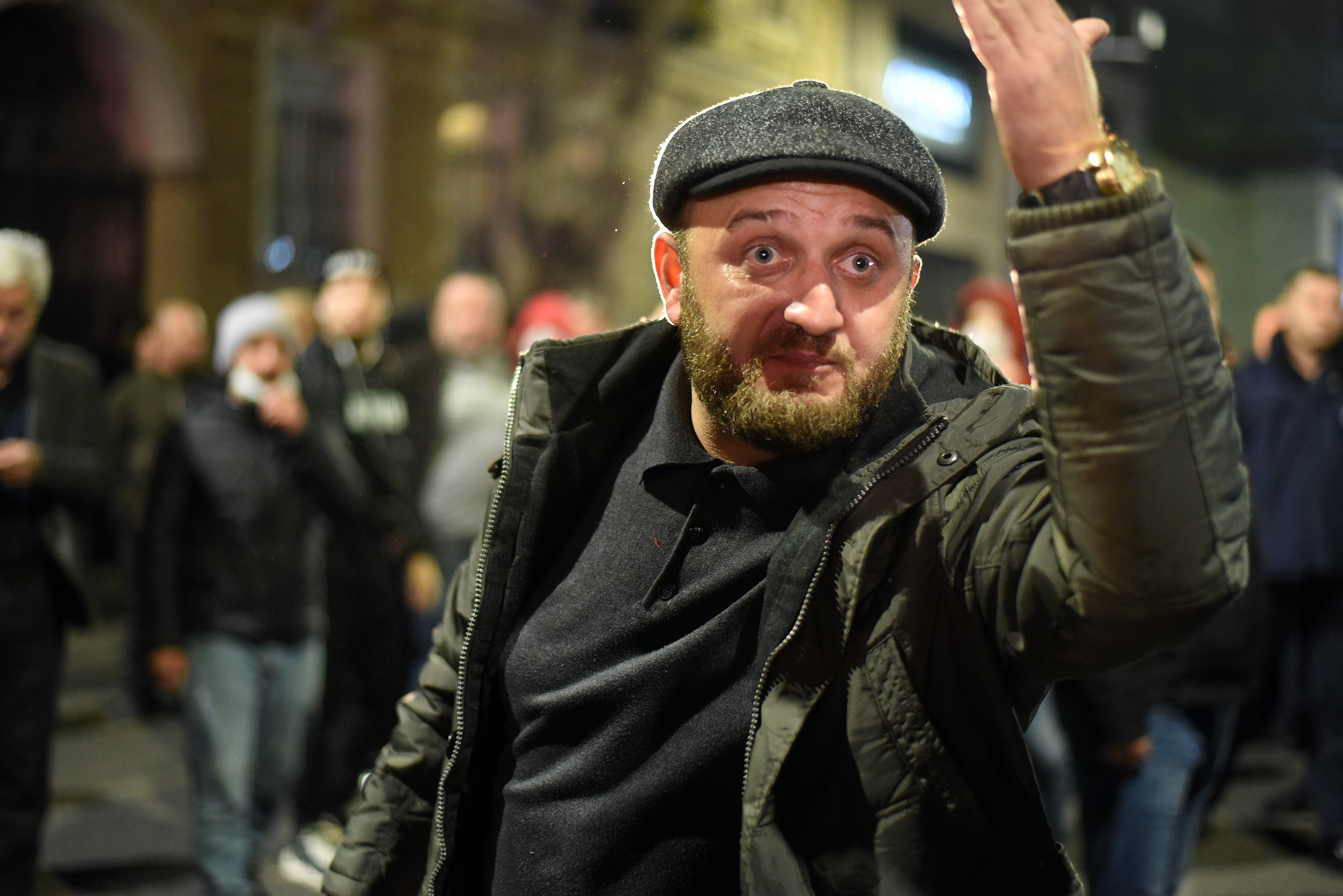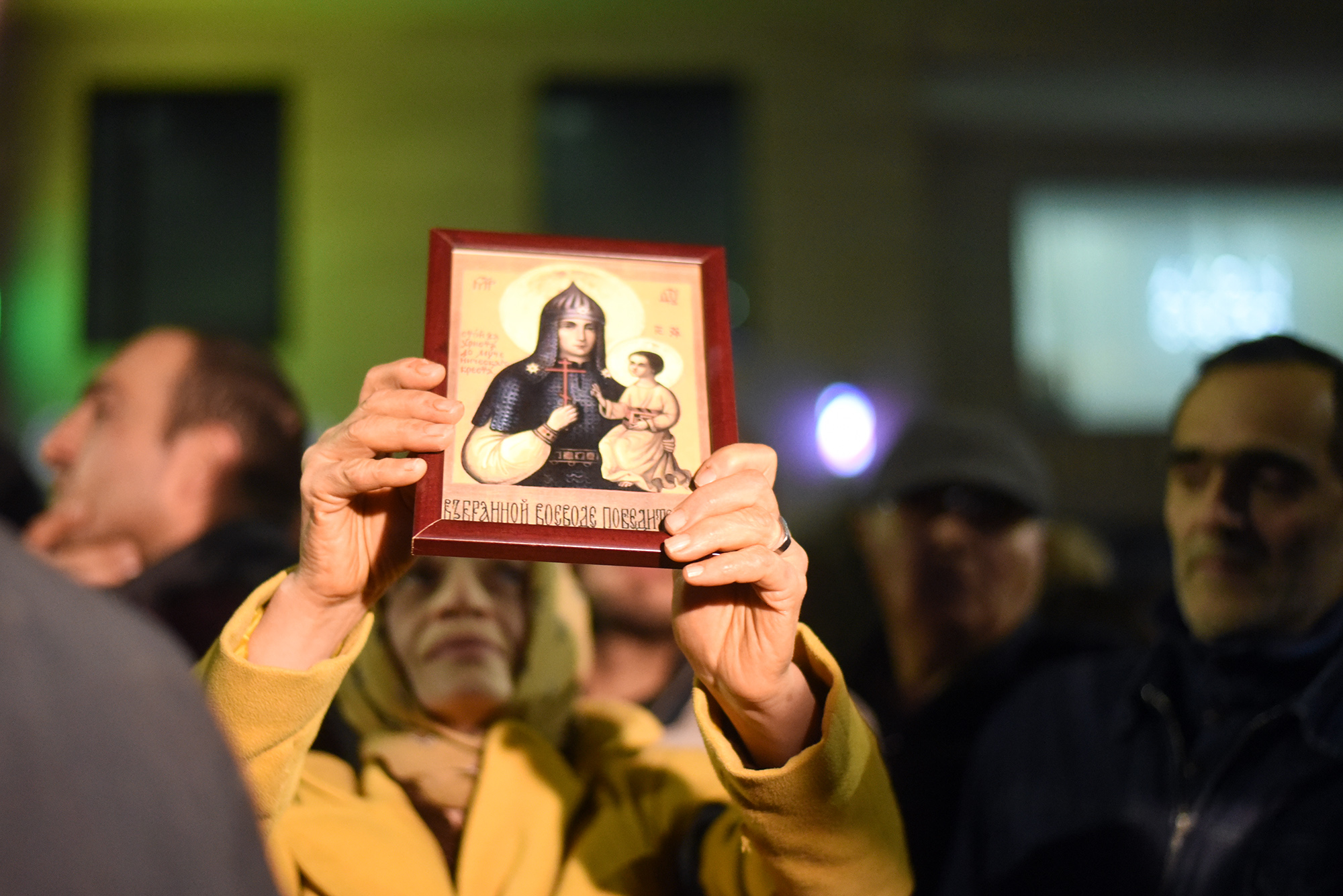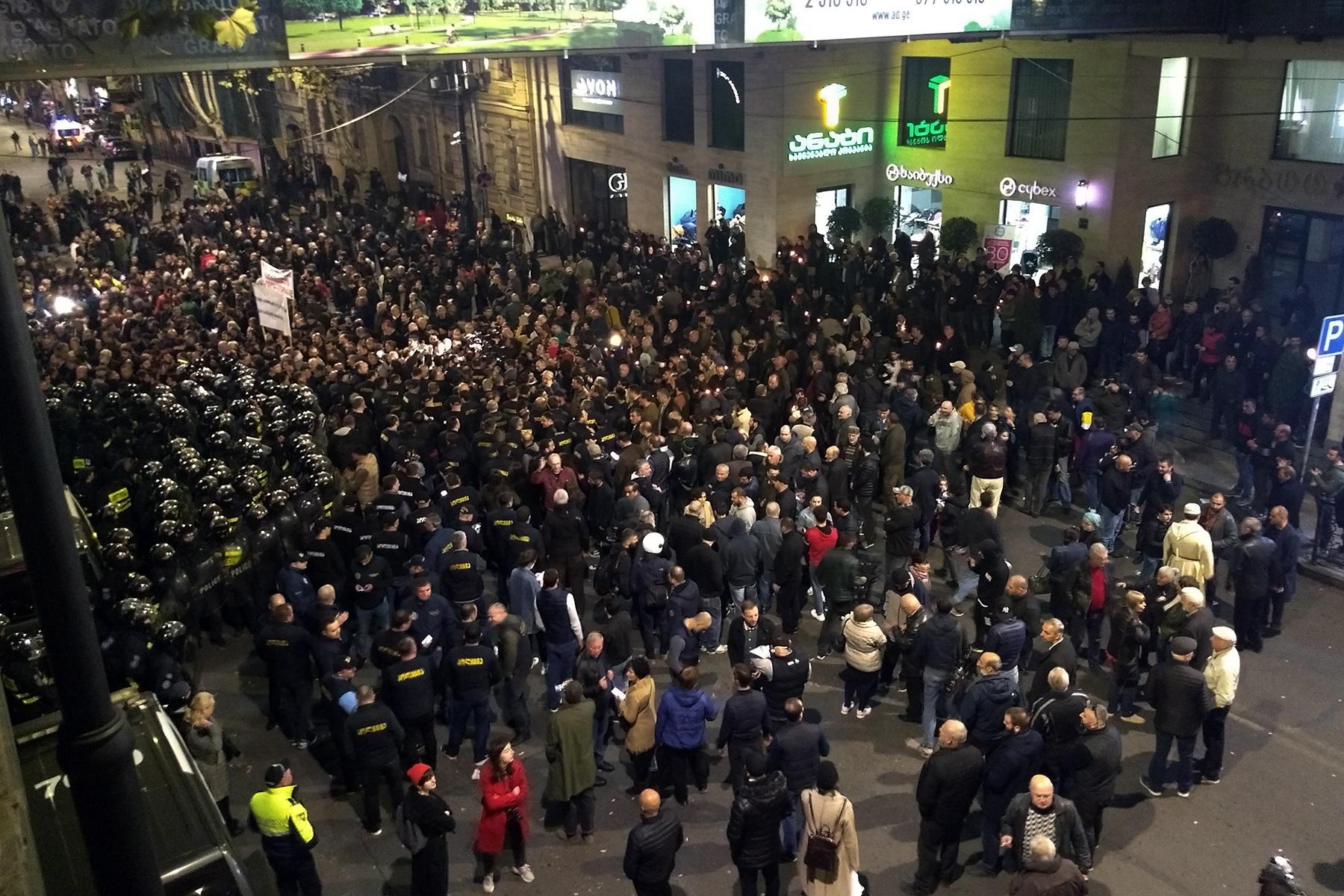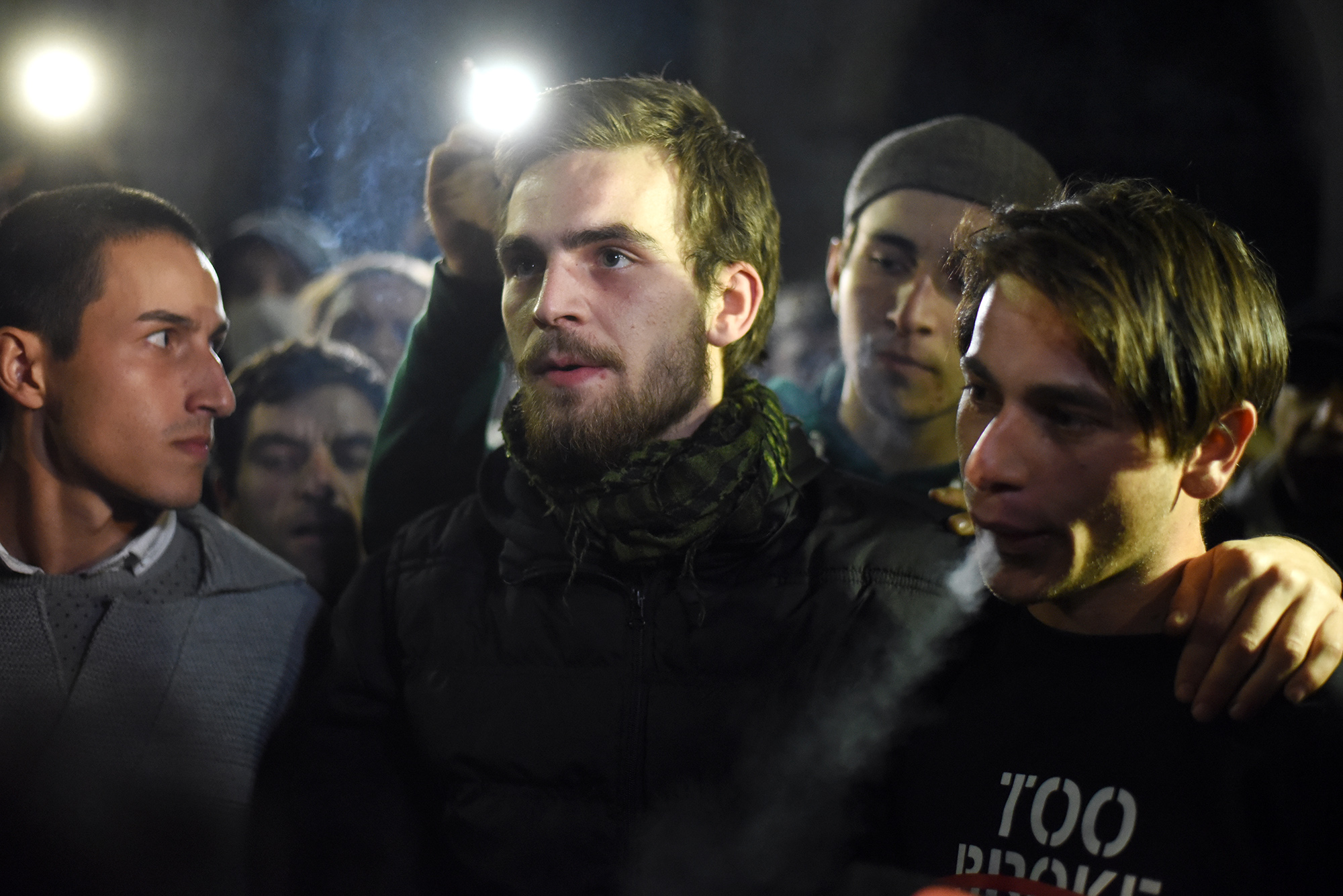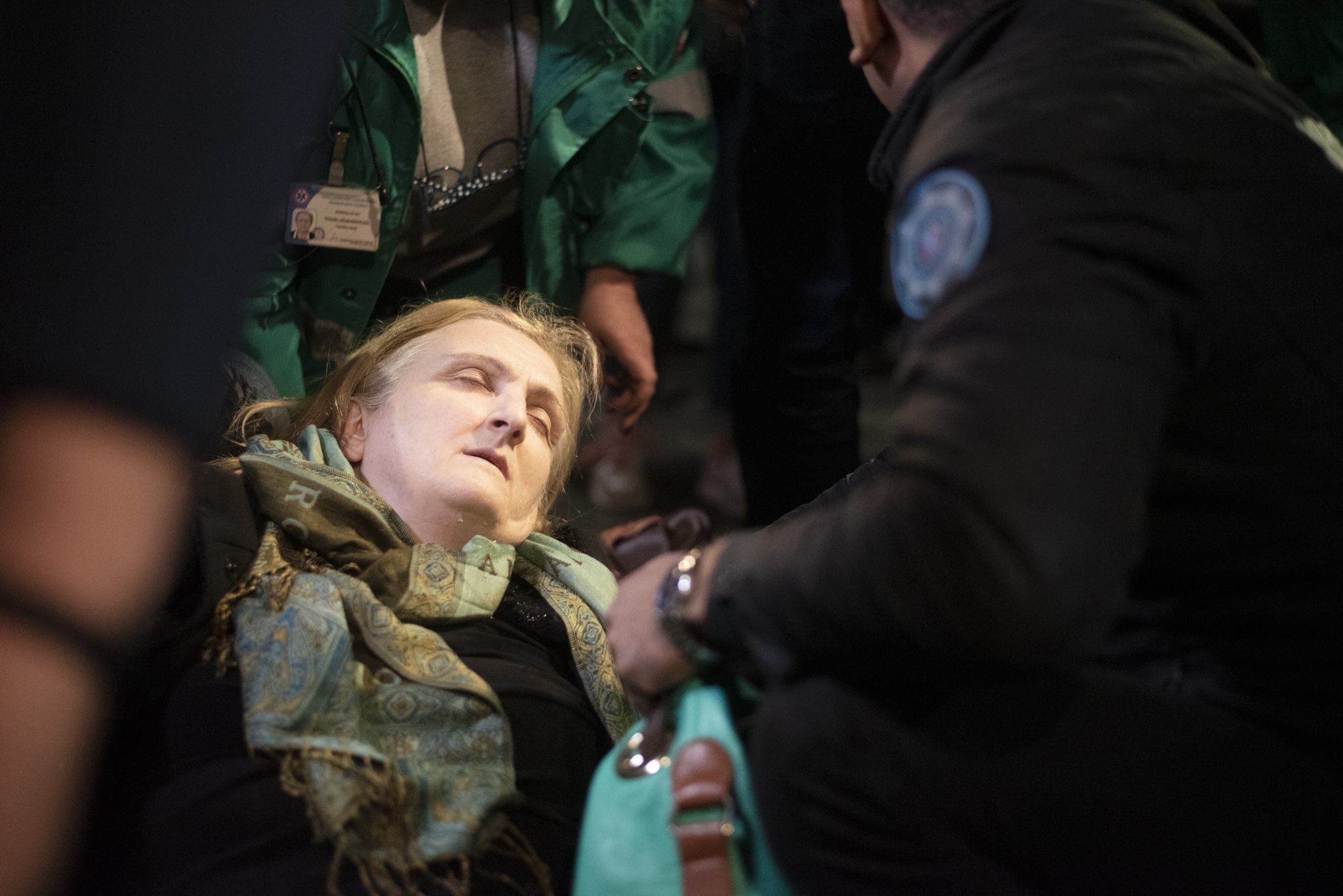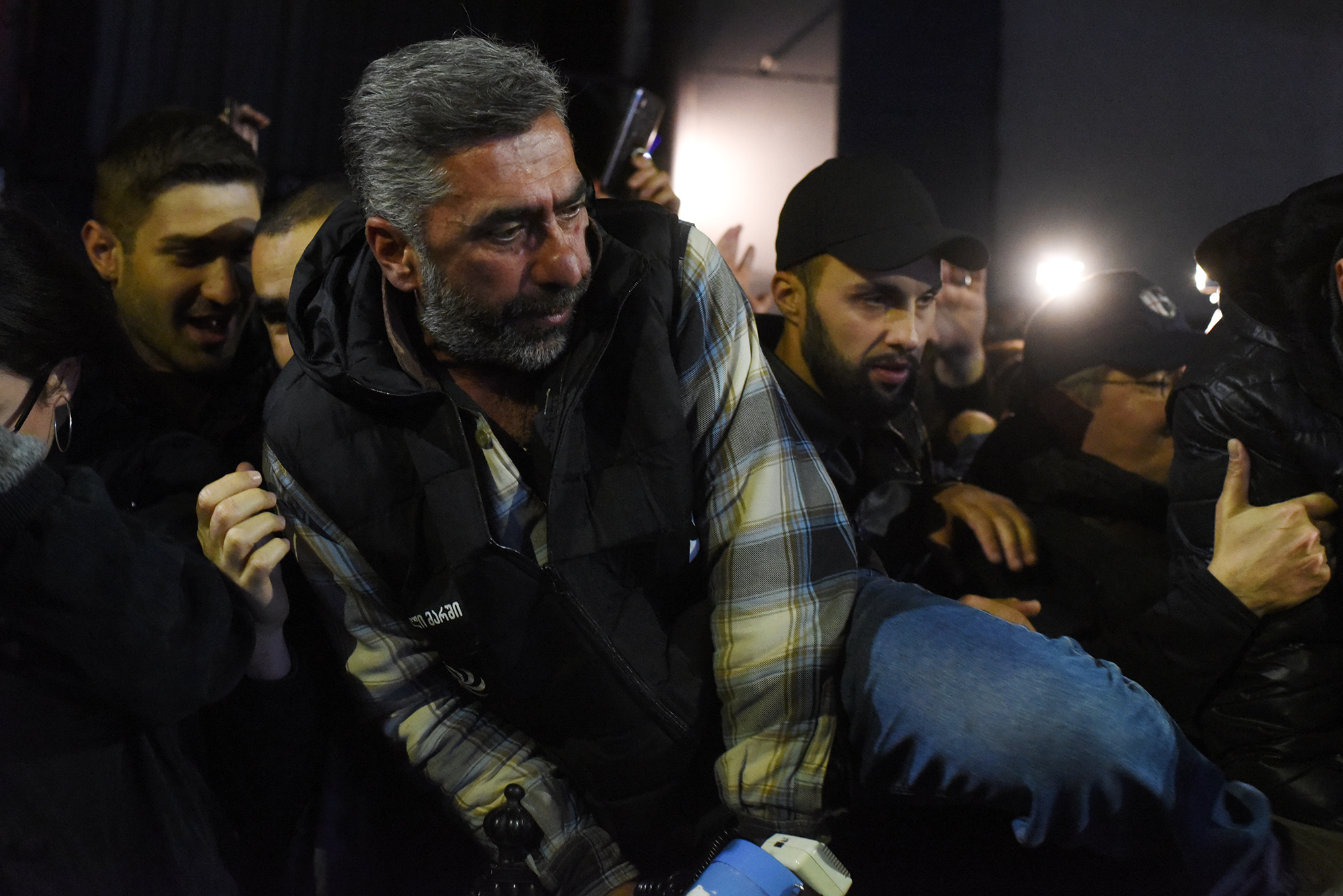
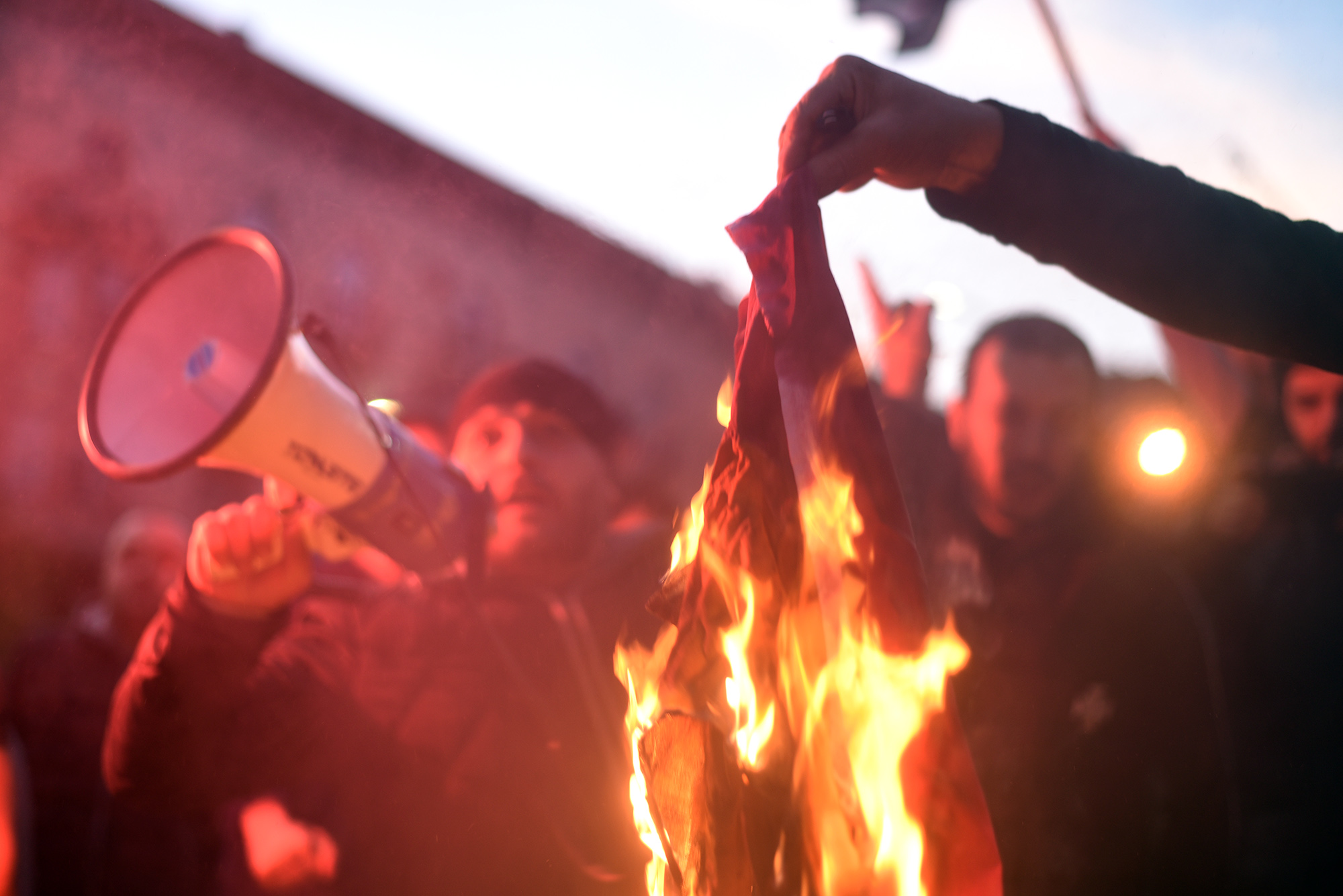
Homophobic protesters threw firecrackers at police and filmgoers and several times attempted to storm the cinema at the Georgian premiere of Swedish-Georgian co-production And Then We Danced.
The film, which centres around a romance between two male traditional Georgian dancers, opened in six Georgian cinemas on Friday evening. It had its world premiere in May at the Cannes film festival.
The largest protest took place outside Tbilisi’s Amirani Cinema, where hundreds confronted riot police deployed to protect the venue.
Protesters several times threw firecrackers at police lines and at filmgoers as they were escorted out of the screening.
Despite leading ultraconservative and far-right figures vowing to prevent the screenings from taking place, police said they ensured the timely launch of the premiere in all six venues.
Police said they detained 11 protesters, including one for assaulting Ana Subeliani, a journalist and outspoken supporter of queer rights.
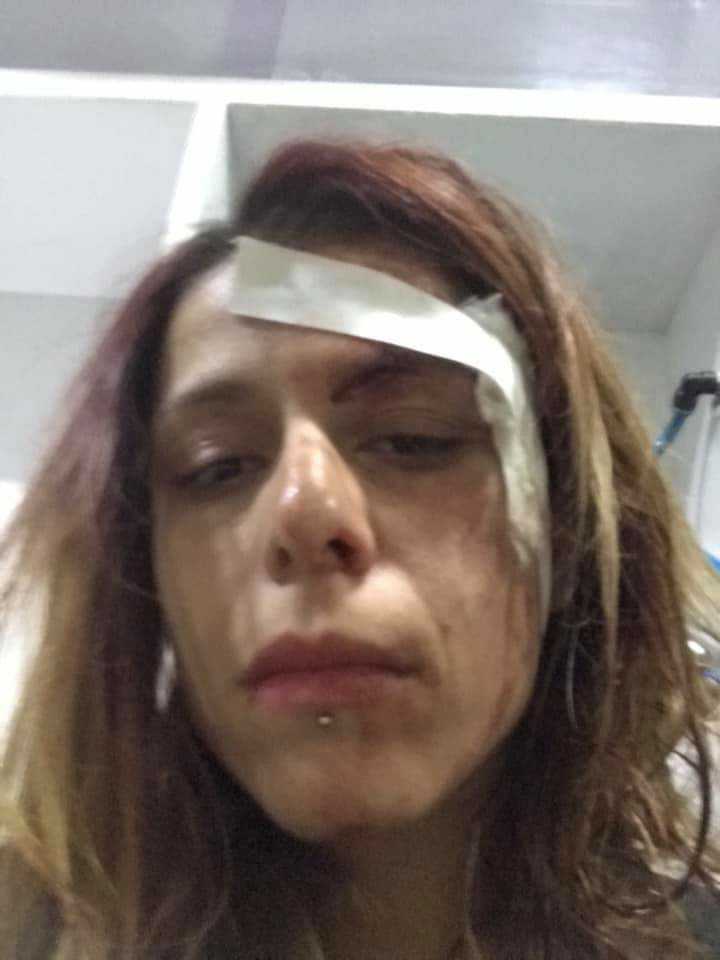
Subeliani said several protesters threatened her and her friends outside the Amirani Cinema while police stood by and watched. She said she was hit with a ‘big rock’ or similar heavy object. A protester also attacked Davit Berdzenishvili, a former MP and member of Republican Party who came to the cinema to show support for the premiere.
The Georgian Public Defender Nino Lomjaria called on Interior Ministry to prosecute not only individuals who resorted to violence but also those organising and calling for it.
For several days, organisers vowed to ‘move the police aside’ and enter cinemas to shut down the screening, insisting this was a ‘peaceful’ tactic.
Protesters also tried to derail a screening in Batumi, where they pelted the Appollo Cinema with eggs and threw fireworks into the venue’s hallways. Three people were detained for disobeying police.
A small group of homophobic activists also gathered in front of the Galleria shopping centre near Tbilisi’s Freedom Square, which hosted another screening.
Georgian cinemas cancelled screenings of other films preceding the premieres ‘out of security concerns’. One of the leaders of the protests, Guram Palavandishvili, had suggested several days before to occupy seats in order to thwart the screening.
As events were unfolding in Georgia, one of the film’s stars, Levan Gelbakhiani, won the Best Actor Award at the 26th Minsk International Film Festival.
Screenings are scheduled to continue throughout the weekend, with tickets having already sold out.
Speaking to TV channel Pirveli on Friday evening, Levan Vasadze, a prominent far-right campaigner and one of the organisers of the protest, said that they would continue to attempt to stop screenings over the weekend.
An investigation into the film for ‘pornography’
Police officers were deployed to all six venues hours before the screenings were due to take place.
The Interior Ministry said that they would protect human rights and freedom of expression regardless of gender, religious identity, sexual orientation, or political views. They called on everyone to act within the limits of the law or officers would ‘act within their mandate and will immediately deal with any violation.’
The ministry also said on Friday that they would investigate an appeal by homophobic activist Dimitri Lortkipanidze that the film contained pornographic scenes. Georgia’s Criminal Code bans the production or sale of pornography.
Ultraconservative and far-right figures called on protesters began to gather near Amirani Cinema several hours before the premiere. These included businessman Levan Vasadze, far-right leader Sandro Bregadze, and anti-abortion and homophobic campaigners Dimitri Lortkipanidze and Guram Palavandishvili.
Addressing those gathered in Tbilisi’s Vera Park, Vasadze spoke out against abortions, the gambling industry, and gambling-related suicides. He said that a ‘rise in the number of paedophiles’ in Georgia was caused by pornography and masturbation. He also spoke out against ‘illegal immigration’ from Iran, Turkey, and China.
Who was leading the protests
Levan Vasadze, who threw his weight behind the protests on 5 November, is a controversial figure in Georgia and has been accused of having links with the Russian state.
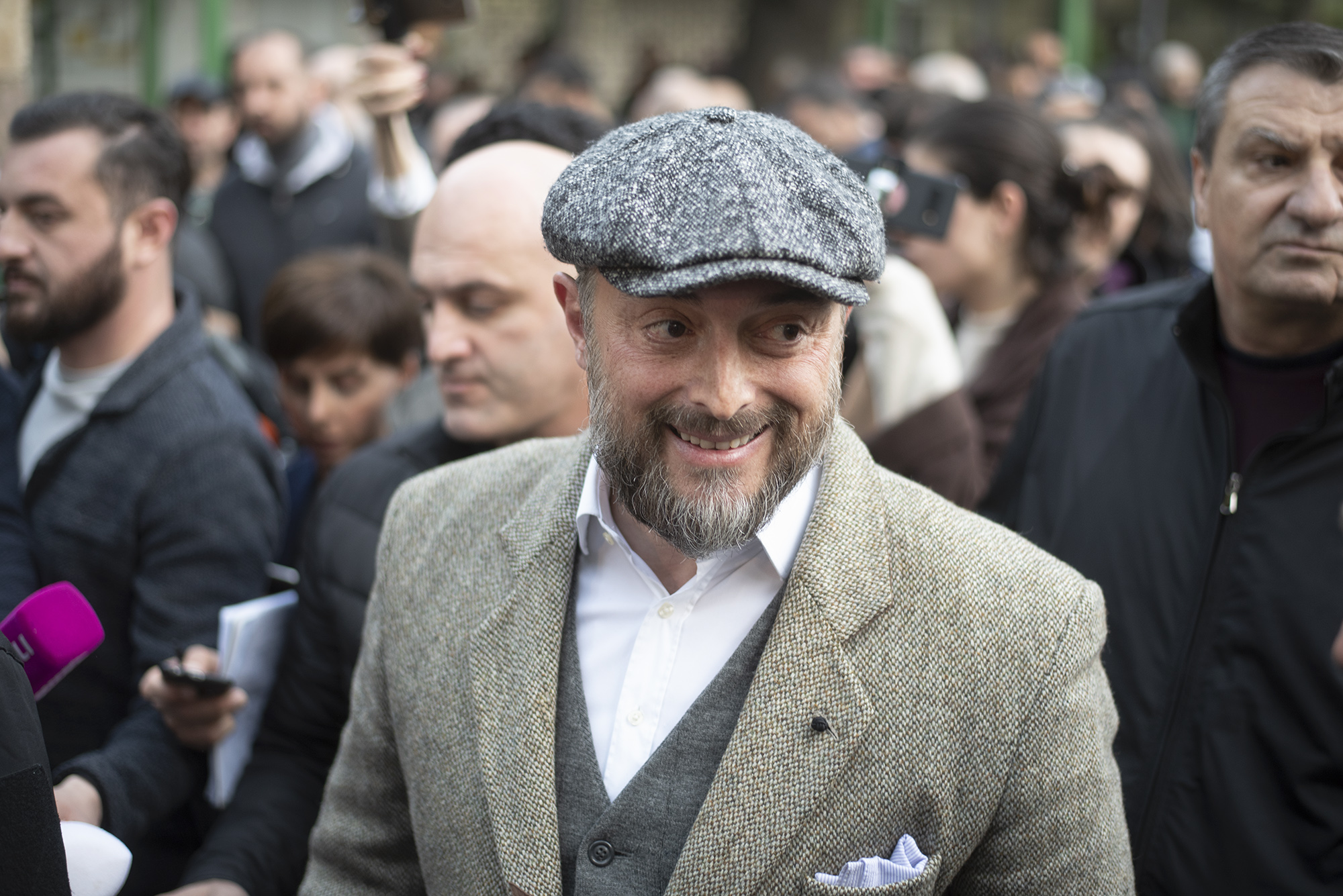
In a video address calling for the premiere to be prevented, he said he had cancelled a planned speech at a conference in Serbia on ‘the sanctity of motherhood’ in order to stay in Georgia.
The event was organised by Russian state-supported Orthodox group the Saint Andrew the First-Called Foundation and the Centre of the National Glory of Russia and was due to be attended by Deputy Chair of the Russian State Duma Olga Yepifanova.
The first to speak out against the film’s Georgian premiere was Sandro Bregadze, the leader of the far-right Georgian March, on 4 November.
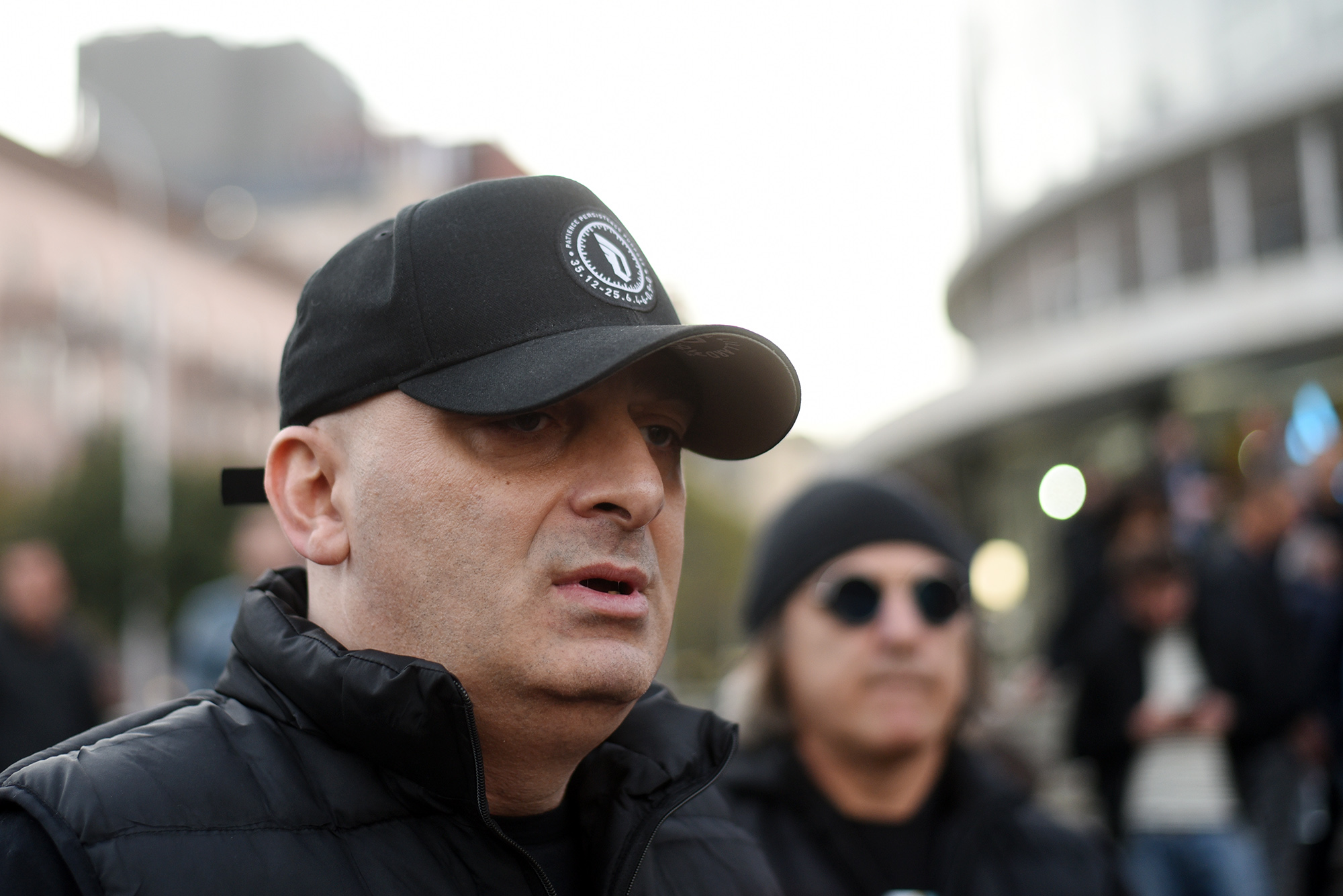
Georgian March is known for their hardline positions against rights groups financed by foreign donors. They have singled out, in particular, the Open Society — Georgia Foundation and the organisation’s founder, Hungarian-born billionaire and philanthropist George Soros.
They became especially visible after July 2017, when they held a several-thousand-strong anti-immigrant rally in Tbilisi.
Bregadze insisted at his 4 November press conference that it was the ‘duty of every Georgian — Orthodox Christians, Muslim brothers, and those of other faiths — not to let the screening of this filth and debauchery in Georgian cinemas happen’.
On the following day, speaking live on TV channel Pirveli, Bregadze vowed to picket ‘gay propaganda’ this week ‘in peaceful forms’, in the spirit of Mahatma Gandhi.
On 5 November, ultraconservative leader Guram Palavandishvili also vowed to ‘prevent the police from protecting’ the film screenings.
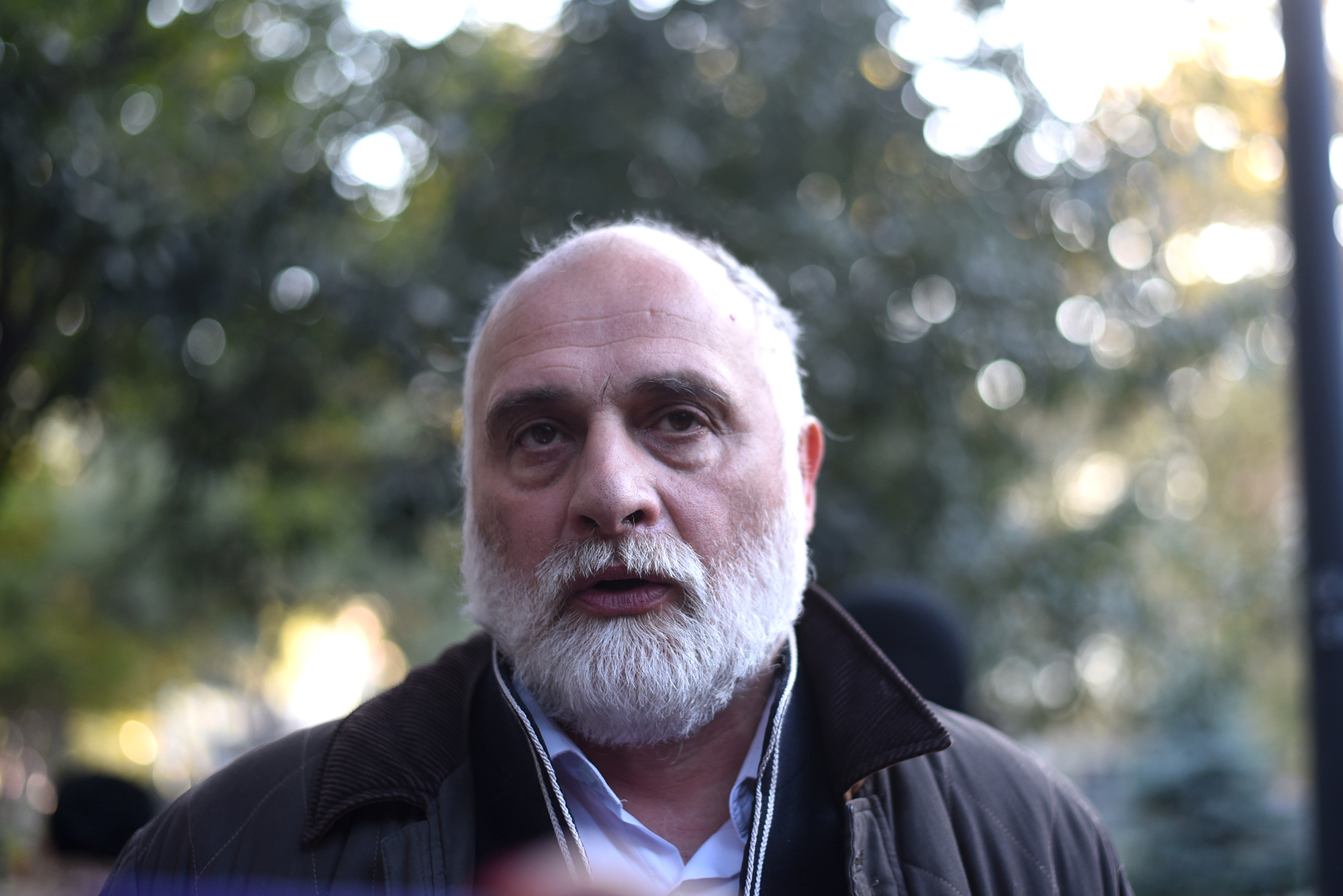
Palavandishvli, who launched the anti-abortion and ‘anti–gender ideology’ movement For a United and Moral Georgia in July, has been mostly known for his homophobic group ‘the Society for the Protection of Children’s Rights.
